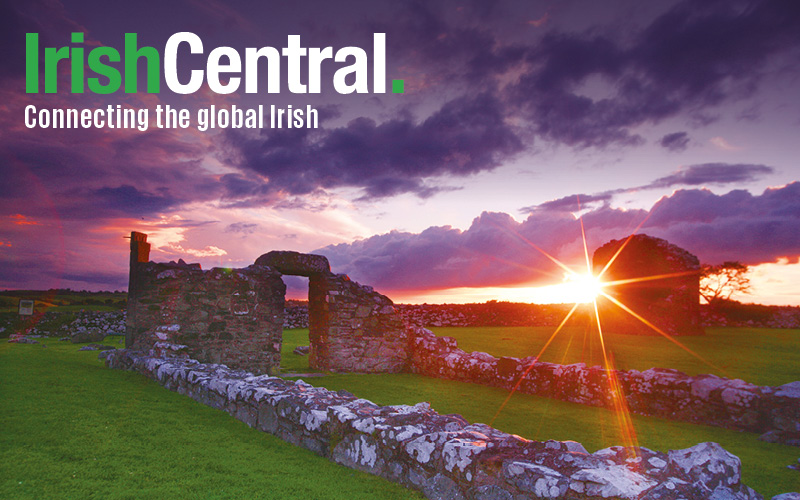The bane of many Irish children’s summer is the dreaded thought of the bog, where you’ll spend your long summer evenings surrounded by dirt bringing home the turf when you’d much rather be wasting away those hundreds of precious hours before school starts do anything else at all. Anything else.
Little do these school children know that given a long absence from their native soil they’ll be quite literally dying to be surrounded by same said Irish dirt again.
Whether it’s been a long time since you were heading down to the bog with your flask of tea and sandwiches or have only ever heard of the good old days working out in the fields from your grandparents, Irish and Irish-Americans alike look with some fondness on the opportunity to access the “auld sod” of their homeland and own their own little piece of Irish dirt to do with what they will.
Listening to his compatriots almost in tears when speaking about their chance to be buried in Irish soil as far back as the 1990s, businessman Alan Jenkins was struck with a simple idea. A simple idea that would see him start a multi-million dollar business out of something you’d knock off your shoes before entering the house - dirt.
READ MORE: In 1897, NY Irish immigrants paid 10 cents to touch land from home.
An Irish immigrant to the US, Jenkins had heard fellow attendees at a Florida meeting of Sons of Erin - a nonprofit dedicated to promoting Irish heritage - become overwhelmed when speaking of Irish soil.
“The only thing everyone [at the meeting] would give their right arm for was a drop ‘of the auld sod’ to put on top of their casket,” he told The New York Post.
The price and value of dirt depends on where, exactly, it comes from. #FeelingLucky? https://t.co/YopDtb8axJ pic.twitter.com/POmj15O4gu
— Mapthology (@mapthology) October 29, 2015
The transfer of soil from one country to another is generally not accepted as strange, exotic, and unseen creepy crawlies and bacteria unknown to the country could be introduced to the native environment with the risk of serious damages on the ecosystem. (Take for example, the story of Bandon in Oregon, where an Irishman’s desire to bring a little piece of home with him almost destroyed the town - read the full story here.)
Currently, according to the US Department of Agriculture, there are just two exceptions to this rule, Israel and Ireland, with Israeli dirt available wholesale from the company Holy Land Earth.
The reason why Ireland has been granted this exception is down to the hard work of Jenkins. Determined to find a way to overcome the strict regulations put in place that disallow Irish soil from being shipped to the US, Jenkins met Pat Burke, a young, Irish-American agricultural scientist in 2006.
Together, they developed and patented a method of sterilization proven to rid Irish soil of all those nasty little unknown things that the US doesn’t want and opened up the Auld Sod Export Company - exporting Irish soil to all who wanted it.
As many of us know, county pride is all important and initially the company wished to sell 32 different types of soil - one from each county. Logistical issues meant, however, that the company decided to restrict themselves to a lovely two-acre field in County Tipperary.
What's a St. Pats day celebration without Irish dirt? pic.twitter.com/OkfTcqQPop
— Kathryn Belanger (@KathrynBel) March 14, 2014
S/o to the Irish, to the land of the taters. And Irish dirt.. #backtoyourroots pic.twitter.com/ATNMUkXk
— Kim Rafferty (@Hollahforadolla) December 27, 2012
The endeavour was an unwarranted success with the company’s website crashing within 15 minutes of launch, leading to a rapid expansion of the small field in Tipperary to keep up with the demand.
While some wanted to have at least a little Irish soil with them when they reached their final resting place, others wish to uphold the Irish tradition of planting a tree for a newborn baby, using Irish soil to do so.
Soon the business had spread to all four corners of the earth, just as the Irish have over the years, turning a multi-million dollar profit, of which Jenkins and Burke chose to donate 80 per cent to charities in the US and Ireland.
Unfortunately, the dirt business itself is now being left to fallow. Whether it’s become a novelty item that has outlived its expiration date or the demand was becoming too much for the supply chain (Ireland is only a small country after all) The Auld Sod Export Company, Jenkins and Burke are slowly putting down their shovels and the export service is grinding to a halt.
Do you own a piece of Irish Dirt? If you do, or would like to, how would you use it?




Comments